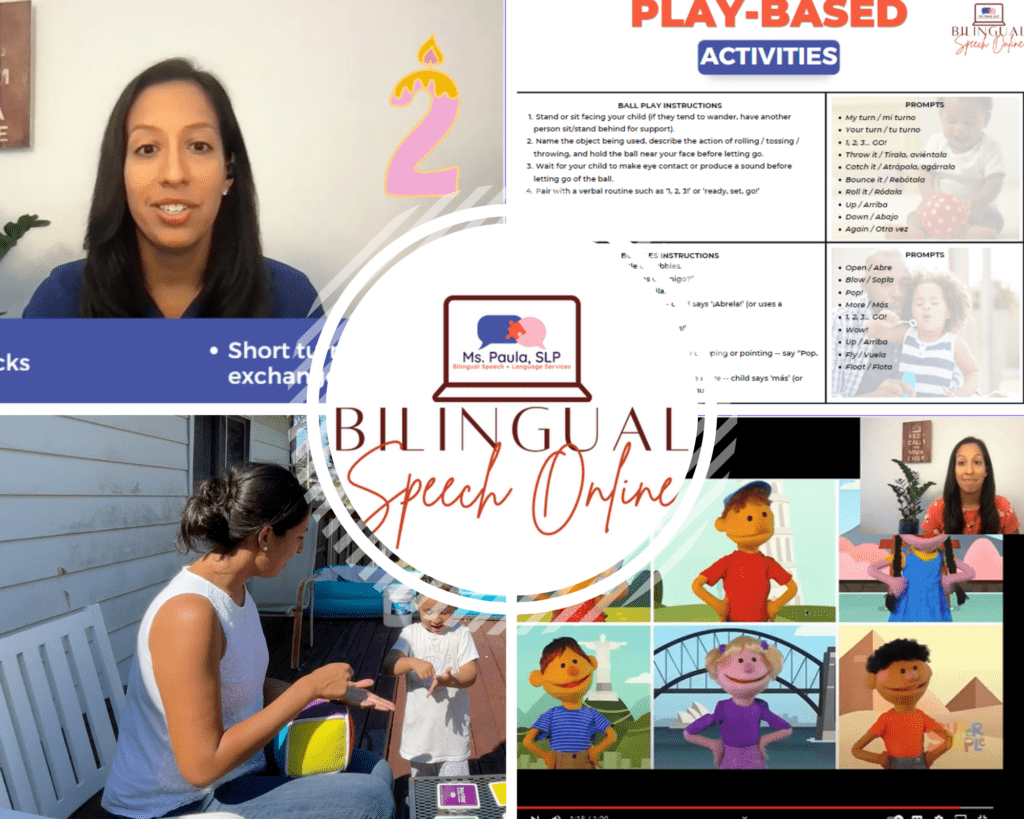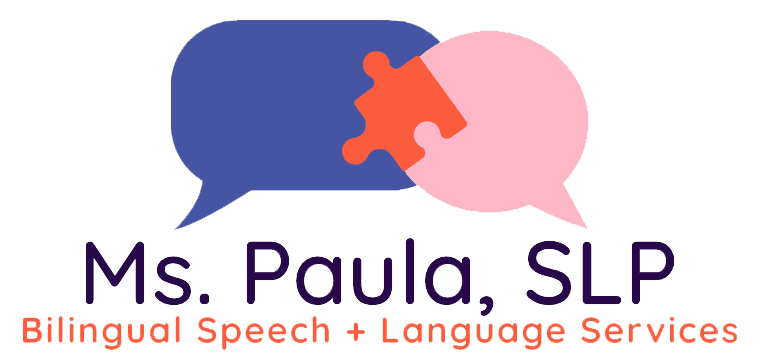Bilingual Speech and Language Therapy for Kids
What Is Language Therapy?
Language is the words we use to share ideas and get what we want. A person with a language disorder may have problems understanding/listening, speaking, reading, or writing. Therapy is designed to improve overall communication. Goals are determined based on areas needing improvement and targeted via a functional approach.
Many dual language learners demonstrate delays in either or both languages. A fair and accurate assessment with nuanced interpretation will distinguish a language different from an impairment. If a disorder exists, therapy can help increase metalinguistic awareness and improve both receptive and expressive language skills.
Spanish Speech Therapy Services
Speech therapy refers broadly to the assessment and treatment of communication problems in children and adults. These communication problems, also called speech disorders, may include:
- Not producing sounds correctly
- Difficulty speaking fluently
- A hoarse and/or raspy voice
People who speak more than one language (multilingual) may have special difficulty producing certain sounds. Bilingual speech therapy is essential towards identifying and improving speech disorders in bilingual children and adults.
Our Spanish speech therapy services treat these disorders in several ways. Speech-language pathologists work closely with patients to target and improve phonemes: the specific vocal sounds that distinguish one word from another word. Our speech therapists also focus on phonological processes, motor patterns, prosody, and fluency disorders such as stuttering and cluttering.
Using various techniques, our bilingual speech therapists are capable of treating a wide range of speech and language delays and disorders in both children and adults.
The goal of our Spanish speech therapy services is to improve communication and boost self-confidence, no matter what language our clients speak.


Pediatric Speech Therapy for Bilingual Children
It is not always easy for parents to tell if their child has a speech-language disorder. This is because the rate at which children learn languages, and the times of specific language milestones, vary widely from child to child.
If your child is experiencing difficulty following directions, responding to questions, learning new words, or completing sentences in any of their learning languages, they may have a language disorder.

If you think your child may be suffering from a speech-language disorder, consider our pediatric speech therapy services in English and Spanish.
If you are unsure whether your child has a language disorder, please contact us anytime for a free consultation.
Bilingual Language Therapy
What’s the difference between speech therapy and language therapy?
Speech therapy focuses on improving the physical mechanics of speech—using the jaw, tongue, throat, lips, and other body parts to produce sounds effectively.
Language therapy, on the other hand, focuses on the mental and cognitive side of oral communication. It’s about teaching children and adults to express their ideas in words and interpret the words of others.
Language therapy is generally divided into expressive language—the ability to use language—and receptive language—the ability to understand the language of others. A person with a language disorder may have problems understanding, listening, speaking, reading, writing, or any combination thereof.
We specialize in bilingual language therapy for English and Spanish speakers.
Our language therapy services utilize a functional approach designed to improve the patient’s overall communication, whatever language they speak.
Contact us to find a bilingual speech-language pathologist near you.

Pragmatic Language Skills

Pragmatic language skills are the skills we use in our everyday interactions with others. These skills determine what we say, how we say it, and the various forms of nonverbal communication such as body language, eye contact, and so forth.
Pragmatic language skills are essential for communicating our thoughts, ideas, and feelings to others. They help us know what is appropriate to say (or not say) in any given social situation. People with difficulties in pragmatic language skills may have trouble communicating their ideas and/or interpreting the communicative intent of others.
Pragmatic language therapy can help individuals with pragmatic deficits enhance their awareness of social situations, learn to read social cues, and respond in the socially appropriate manner. Certain individuals may also benefit from learning strategies to improve their working memory, mental flexibility, impulsivity, or their ability to plan, organize, and manage time.
When working on pragmatic language skills, it is crucial to work with a therapist who speaks the same language you do. Our English-Spanish therapy services are tailored to cultivate pragmatic language skills in bilingual individuals.
Executive Function Skills
Executive function skills are the mental processes we use to plan, focus, remember orders or instructions, pay attention to things, and multitask.
Put another way, executive functioning is the process whereby the brain filters out distractions, controls base impulses, and focuses on a specific task or set of tasks. Whenever you put your mind to something in order to achieve your goals, you use executive function skills.
Deficits in these areas may be exhibited by children and adults alike. Goals for therapy will be developed with functional outcomes in mind. Our mission is to help all our clients develop positive pragmatic language and executive function skills. We give our clients the skills they need to thrive in ordinary life.

